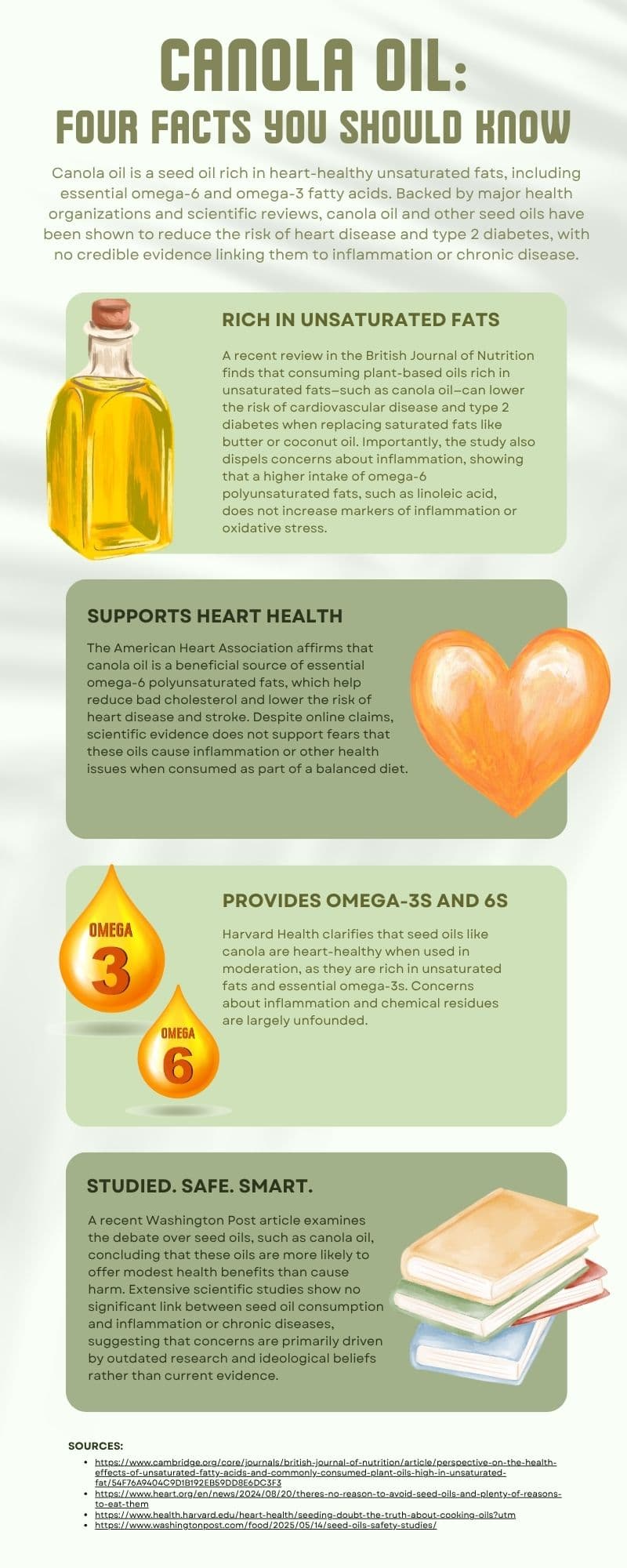Health Organizations Recommend 5-10% Daily Omega-6 Intake, Backing Seed Oils Over Saturated Fats

Recent discussions on social media have highlighted the robust scientific consensus surrounding the health implications of seed oils. Julie Young, in a recent post, asserted that "the research on seed oils is clear, consistent, and has been reproduced in multiple large studies," adding that "seed oils are not health harming" and "might be health promoting - especially when compared to being replaced with saturated fats." This statement aligns with prevailing dietary guidelines from major health organizations.
Numerous studies indicate that many seed oils, which are rich in omega-6 polyunsaturated fatty acids (PUFAs), are essential for bodily functions including metabolism and bone health. When consumed as a replacement for saturated fats, these oils, such as canola, corn, olive, and sunflower, have been shown to help reduce low-density lipoprotein (LDL) or "bad" cholesterol levels. Concerns regarding omega-6s causing inflammation are largely unsubstantiated by current evidence, with some reviews suggesting they may even reduce inflammatory markers.
The American Heart Association (AHA) and other prominent health bodies have consistently recommended vegetable oils high in polyunsaturated and monounsaturated fats as integral to a heart-healthy diet. Dr. Alice Lichtenstein, a professor of nutrition science and policy at Tufts University, emphasized that "the data are quite clear" regarding the benefits of replacing saturated fat with unsaturated fat to reduce cardiovascular disease risk. The AHA specifically advises individuals to obtain 5–10% of their daily calories from omega-6s.
This scientific consensus underscores the recommendation to choose liquid vegetable oils over tropical oils like coconut and palm oil, and solid fats such as butter and lard. Experts like cardiologist Dr. Dariush Mozaffarian of Tufts University affirm that the vast majority of scientific evidence points to either benefit or neutrality for seed oils, particularly when they substitute less healthy fat options in the diet. The consistent findings across extensive research reinforce their role in promoting overall cardiovascular well-being.